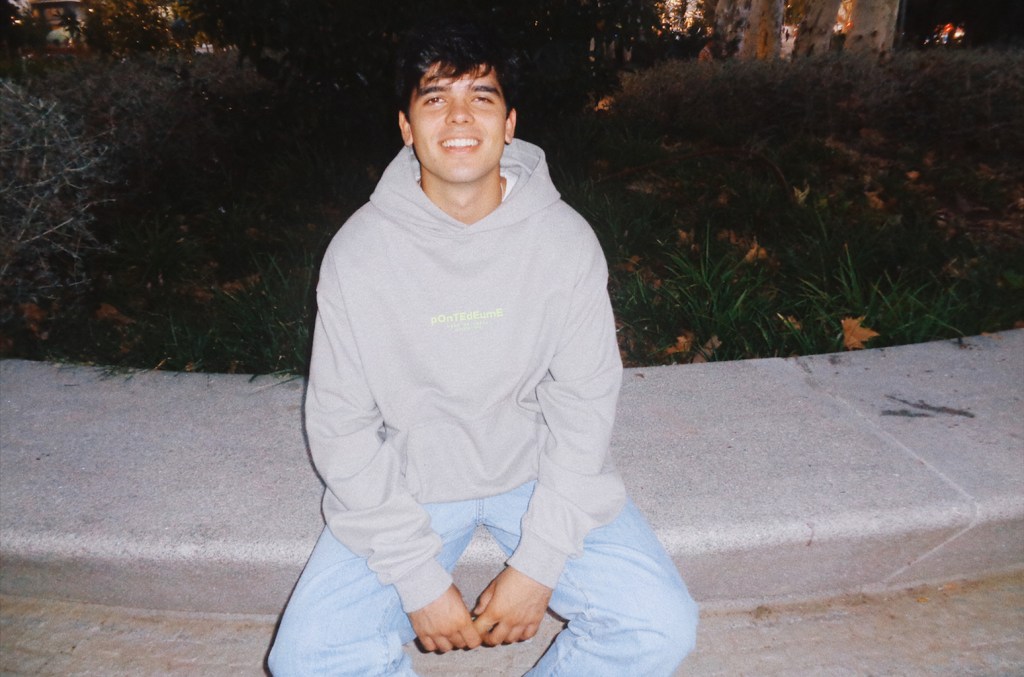In September of 2022, Spain’s Iñigo Quintero independently released his debut single “Si No Estás.” This year, he unleashed three more singles (”Sobredosis,” “Será Por Ti,” and “Sin Tiempo Para Bailar”) — but it was his first song ever that ultimately went viral, reached No. 1 on various global charts, and put the Madrid-born artist on the map, one year after its release.
“This is the most interesting thing,” Alejandra Olea, Believe America’s Managing Director, tells Billboard. “It’s exactly what’s happening today in music, with streaming, digital, short-form video. and TikTok. This is a viral story.” (Quintero signed with indie record label Acquistic this year in March, and is distributed by the French-based Believe Music.)
“Si No Estás” is a soft piano ballad with thought-provoking lyrics delivered via Quintero’s passionate, raspy vocals. “I don’t know where I’m going/ It’s not real/ A long time ago you became one more/ And I hate how much I am/ Full of this poison, and I hear thunder if you’re not there,” he laments in the nostalgic chorus.
By Oct. 23, 2023, the track was garnering over 5.7 million plays on Spotify a day, pushing it to No. 1 on the service’s daily global chart — marking the first time a solo Spanish artist had achieved this milestone. On Nov. 4, the song topped the Billboard Global Excl. U.S. songs chart, with 54.2 million streams (up 10%) and 1,000 sold (up 37%) outside the U.S. for the period of Oct. 20-26, becoming the Spanish singer-songwriter’s first entry and leader on the chart. What makes it all more impressive is that Quintero was until recently a completely unknown artist.
So, how exactly did a brand new artist achieve global success?
“Believe has a TikTok dashboard where we study the virality of all the songs for each of our business units. In our Spain business unit, we realized that this song was having significant peaks in creations and viralizations, and we began to observe it,” Olea explains. “This was a success by the people. It was mainly driven by the audience who brought it to the top, and it was important for us to catch it on time and really ignite the flame.”
Olea assures that the song’s growth on TikTok was organic, and that there were no media buys or paid influencer campaigns — but that once it began to blow up and landed on Spotify’s Top 50 Spain playlist, the distributor began knocking on doors.
“We reached out to the platforms, mainly Spotify, Meta, TikTok and YouTube, and began to re-pitch it internationally, specifically in the Spanish-speaking regions. We made this possible thanks to the collaboration of two teams: Believe LATAM and Believe International,” she elaborates. She also notes that “Si No Estás” was placed on 180 key playlists across different platforms, 79 alone on Spotify, that have over 95 million combined followers.
“The most pivotal moment [was] when a slow ballad coming from an unknown artist [became] one of the best performing tracks in all playlist spaces it was added to,” Melanie Parejo, Spotify’s Head of Music for Southern & Eastern Europe, tells Billboard. “Another good sign [came] when our colleagues from other non-Spanish-speaking territories were open to program the track, as we had flagged the seemingly unstoppable pace of the growth in those countries. It feels like the song had a similar path to the one in Spain: starting with viral surfaces and moving on to pop/hits spaces.”
Over on TikTok, the track began making waves in September of this year, where it first made its appearance on the TikTok Spain Viral playlist.
“‘Si No Estas’ resonated so much with our community that multiple versions of it started going viral: the official sound, delivered by the rights holders; uploaded by users (UGC: user-generated content); and also a sped-up version that was officially released afterwards by the artist and delivered to TikTok and all streaming platforms,” Giulia Lizzoli, TiKTok’s Head of Music Operations for Southern Europe, says to Billboard. “To date, the official versions of the song (including sped-up versions) have generated more than five million videos created by our community.”
The song’s global appeal, however, is due to its relatable and melancholic lyrical content.
“It’s a story of the power of music,” Lizzoli says. “The lyrics of this song are very deep. It’s very agnostic to men, women and couples. It talks about when you are missing something that’s essential in your life. It’s a topic that’s very broad. The meaning that a lot of people have given it is love, but it could be a lot of other things that if you don’t have them, you feel lost. I think that he speaks to a reality that we’re having right now, that a lot of Gen Z feel like when there’s no meaning, they feel lost. When the person you love is not there, you feel that life’s not worth it. Iñigo touched a nerve of a collective feeling that people from France, Germany, Spain, all over the world, have connected with it.”
Quintero — who despite his viral success maintains a mysterious personality on social media — is now making the rounds with his new single “Lo Que Queda de Mí,” out today (Nov. 30), and is working on his debut studio album, slated for a 2024 release, while counting on the support and guidance of his teams at Acquistic and Believe. Billboard can confirm that an official music video for “Si No Estás” is also in the works.
Source link









